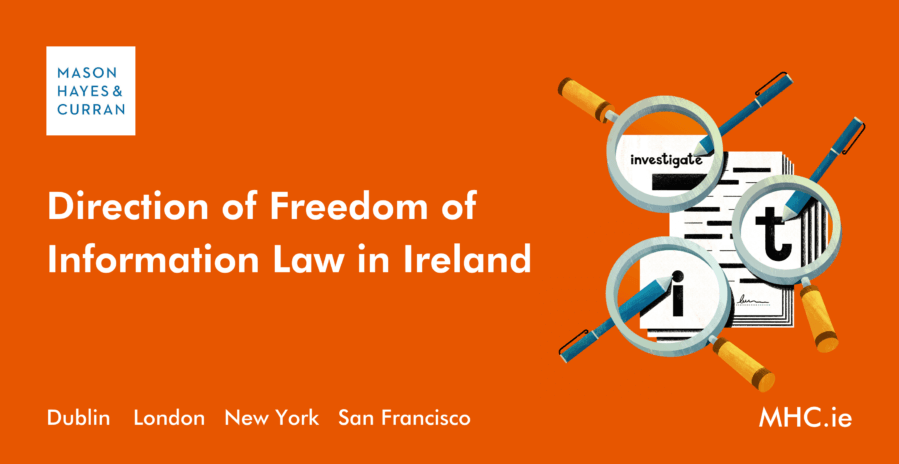
The Minister for Public Expenditure and Reform announced in September 2021 that the cabinet had approved a review of the Freedom of Information (FOI) Act 2014. A first-phase public consultation on the scope of the review was carried out at the end of 2021. The outcome of this review, coupled with a customer satisfaction survey has shaped the issues and themes under consideration in a second public consultation. This opened on 16 June 2022 and is due to close on 12 August 2022. Submissions may be made via the FOI Consultation Form, which is also available on www.gov.ie
The consultation is open to everyone and will likely draw responses from diverse groups, to include:
- Requesters
- FOI bodies
- Journalists
- Interest groups, and academics
It is an opportunity to have your say on the shaping of FOI law in Ireland in the coming years. The consultation will also be accompanied by regional events to raise awareness of the review. Once the consultation process has closed, the intended next step is for a report and recommendations to be published and presented to Government.
The Consultation Document identifies themes and issues, which arose from the first public consultation, such as the benefit of FOI as an accountability mechanism and a “key part of enabling active citizenship” and supporting a participatory democracy.
The themes and issues identified in this the Consultation are broken down into two broad categories:
Structural issues
These are aimed at updating and restructuring FOI law. By their nature, the responses on structural issues are intended to be a starting point in a longer process of consultation on the future of FOI. They focus on issues including:
- The streamlining of FOI with other access regimes such as Access to Information on the Environment and GDPR
- Transparency by design and the use of digital/Information and Communications Technology (ICT) systems to achieve this
- Proactive publication to promote a greater understanding of FOI bodies and their activities, and
- Informal release of records and information rather than through the FOI channels
Incremental reforms
These are aimed at updating certain features and addressing issues that have arisen in practice and are seen as achievable in the short to medium term. They focus on issues such as:
- Improving the request process and reducing its, at times, adversarial nature
- Reducing complexity around fees and charges
- Reconsidering how to designate a body as a FOI body to avoid confusion, and
- Mechanisms to address abuse of FOI and frivolous or vexatious requests
Conclusion
The FOI regime has been well-utilised and heavily litigated since its introduction in 1997. Further, the expanded scope of FOI bodies and the removal of request fees under the FOI Act 2014 led to a significant increase in the number of FOI requests made annually, based on statistics published by the Government in the Consultation documents. This continues to increase year-on-year, together with the consequent burden on FOI bodies to deal with those requests.
For more information, contact a member of our Public, Regulatory & Investigations team.
The content of this article is provided for information purposes only and does not constitute legal or other advice.
Share this:




